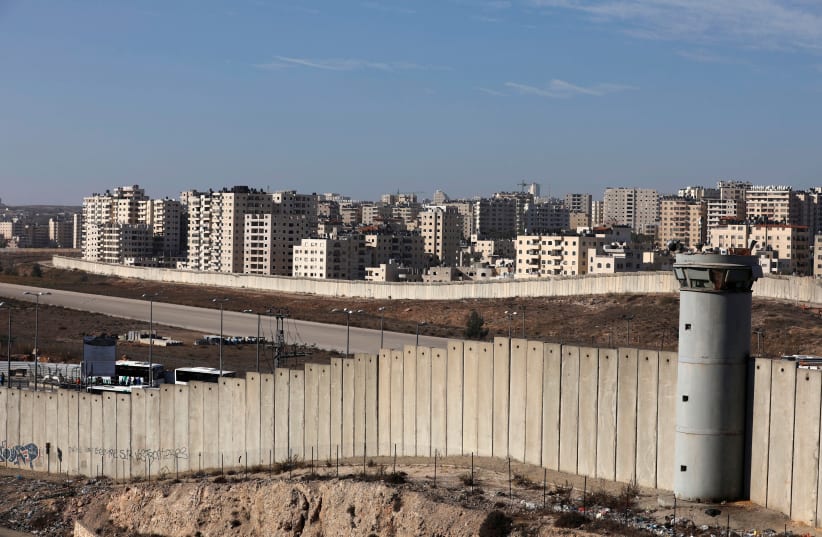Ramat Gan Mayor Carmel Shama HaCohen has told residents to stop asking him to build a West Bank-style "separation wall" along the city's border with the Haredi (Ultra-Orthodox) city of Bnei Brak.
"The authority to close an area in a neighborhood or a city lies in the hands of the army and police only," HaCohen wrote in a Facebook post on Saturday, adding: "there is no point in endlessly demanding to build a wall or separation fence near Bnei Brak. We do not have the authority nor, obviously, the time to build a wall."
The term "Separation Fence" commonly refers to Israel's eight-meter-high (26-feet-high) West Bank barrier built in 2002, during the Second Intifada. The wall is known among left-wing and pro-Palestinian circles as the "Segregation Wall" or the "Wall of Apartheid," as it surrounds various Palestinian towns and communities.
The city of Bnei Brak, alongside other Haredi communities, has seen a high number of coronavirus infections, with some blaming Israel's Ultra-Orthodox minority for spreading the disease. Ynet recently reported that 29% of those who tested positive for coronavirus were infected in synagogues and yeshivas.
"The numbers in Bnei Brak are well known to decision-makers, and I will make a request for an investigation into whether the spread of coronavirus into Ramat Gan shows signs of having been caused by the outbreak in the neighboring city," HaCohen said. "As of now, Ramat Gan has a lower infection rate than Tel Aviv, Kiryat Ono, Herzliya and Ra'anana, and is a little higher than Givatayim."
Amiram Goldblum, a senior chemistry professor at Hebrew University and a former Peace Now activist, wrote on Facebook in early March that the government is "hiding information from [Israeli citizens]."
He added that "in Italy, towns and cities are being closed to prevent the spreading of the infection. Israel needs to close Elad and Bnei Brak, Modiin Ilit and Beitar Ilit, and Netivot and Beit Shemesh, as well as large neighborhoods in Ashdod and Jerusalem." All of these areas are large Haredi communities.
Former Peace Now secretary-general and Meretz MK Mossi Raz called on secular Israelis to refrain from blaming Haredi Jews for the outbreak. "My secular brothers, do not libel the Ultra-Orthodox," he said. "Maybe some of the Haredi localities have a higher percentage of carriers...[but] it is caused first and foremost by poverty and high population density."
Raz added that "even if the Haredi community has a minority that disobeys (justified!) government instructions, please do not attack the entire community for the acts of this minority. This is a time for solidarity."
